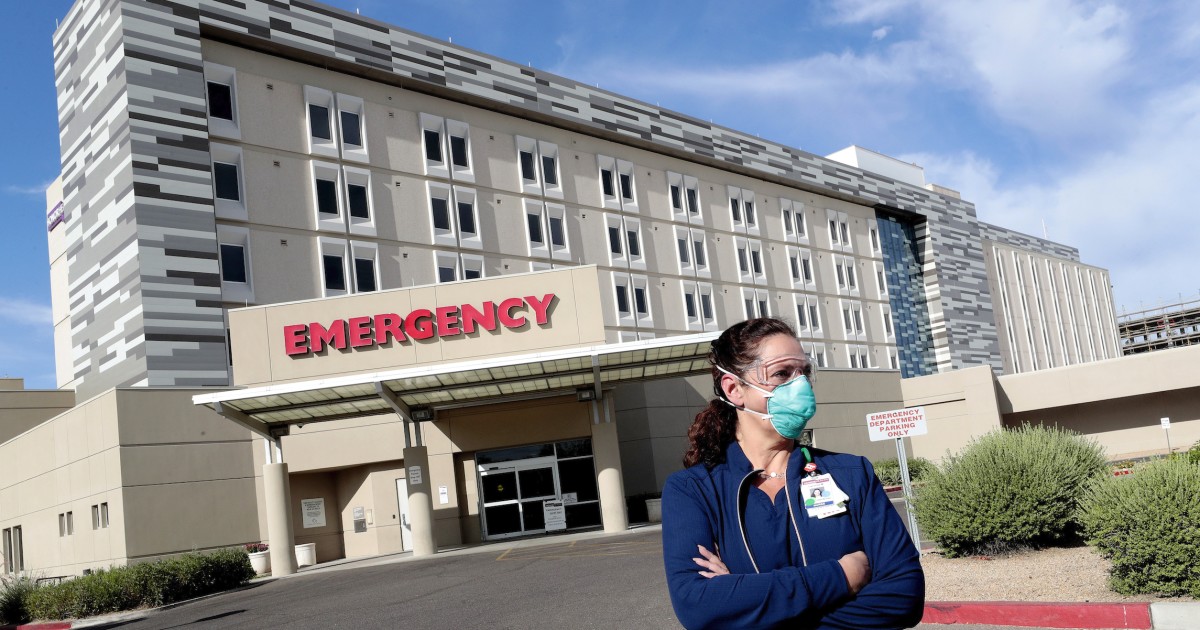
Coronavirus infections are rising in the United States, driven by the delta variant and threatening to strain hospitals in areas with low rates of vaccination.
In the last week, the seven-day average of confirmed COVID-19 cases has jumped 69% to 26,306, according to the Centers for Disease Control and Prevention. Deaths have risen 26% to 211, and hospitalizations have risen 36% to 2,794.
Most states are seeing at least small upticks in the number of daily cases. A Washington Examiner analysis of CDC data found that only 10 states — Colorado, Indiana, Maine, Massachusetts, Michigan, Montana, New Hampshire, Rhode Island, South Dakota, and Vermont — did not experience an increase in cases from July 7-14.
The delta variant, which is believed to have originated in India, is driving the current wave. According to research from the United Kingdom, it may be more than twice as infectious as the original virus. The CDC reported that by early July, the delta variant accounted for 58% of new COVID-19 cases.
WHAT TO EXPECT FROM STATES WITH LOW VACCINATION RATES IN A SUMMER COVID-19 SURGE
Almost all recent cases have occurred among those who have not received a COVID-19 vaccine.
“There is a simple public message: Get vaccinated or get COVID,” said Dr. Georges Benjamin, executive director at the American Public Health Association.
“This is becoming a pandemic of the unvaccinated,” Centers for Disease Control and Prevention Director Rochelle Walensky said at a briefing Friday.
An Associated Press analysis of CDC data found that over 98% of those hospitalized with COVID-19 in the U.S. in May and over 99% who died were unvaccinated. Of the 12 states with 40% or less of their populations vaccinated, eight have seen daily cases increase by 48% or more in the last week. Two, Alabama and Georgia, have seen cases double in that time.
Many of those states are in the South and Midwest, which, according to Benjamin, entails additional risk because of underlying poor health.
“Many of the low vaccinated states have poorer health outcomes — high incidences of diseases like heart disease and diabetes,” he said.
People with preexisting health conditions are far more likely to be hospitalized with and die from COVID-19.
Susan Hassig, an epidemiology professor at Tulane University School of Public Health and Tropical Medicine, said she doesn’t think that the current increase in cases will be as severe as the wave the U.S. experienced last summer. But she warned that, with still just over 50% of the population not fully vaccinated, cases could increase substantially.
“Where people are unvaccinated, even if only a small percentage of them get infected, that will still be a lot of people,” Hassig said.
Some hospitals are already feeling the strain. In Springfield, Missouri, health officials have submitted a request to the state government for funding to set up an alternate care site for COVID-19 patients. The “increase in severe illness is projected to outpace hospital capacity,” the officials said in a statement. About 231 people are being treated for COVID-19 in Springfield-area hospitals.
A total of 1,357 people are hospitalized with COVID-19 in Missouri, a 44% increase over the last two weeks, according to data from the New York Times. Missouri is recording an average of 1,779 daily cases of COVID-19, a 60% increase over the last week.
Arkansas has the third lowest vaccination rate in the nation, with only about 35% of residents fully vaccinated. There are 669 COVID-19 patients in Arkansas hospitals, 119 of whom are on ventilators, the highest levels since February.
CLICK HERE TO READ MORE FROM THE WASHINGTON EXAMINER
At least two hospitals in the state, Mercy Fort Smith and Mercy Hospital Northwest Arkansas, are reporting that their COVID-19 units are at capacity.
